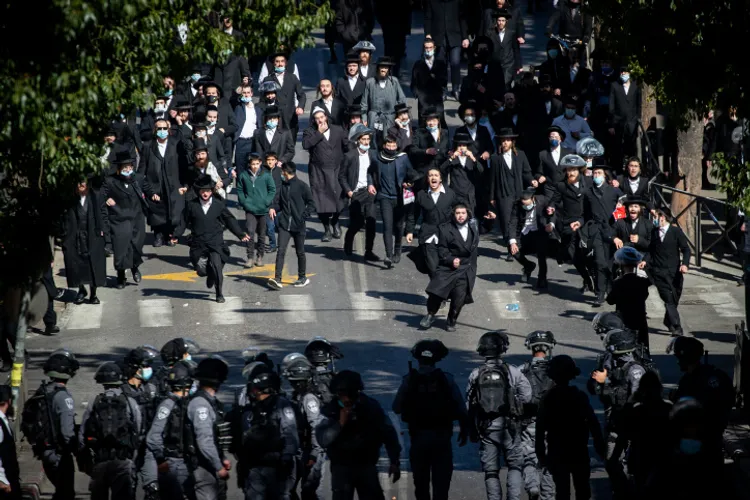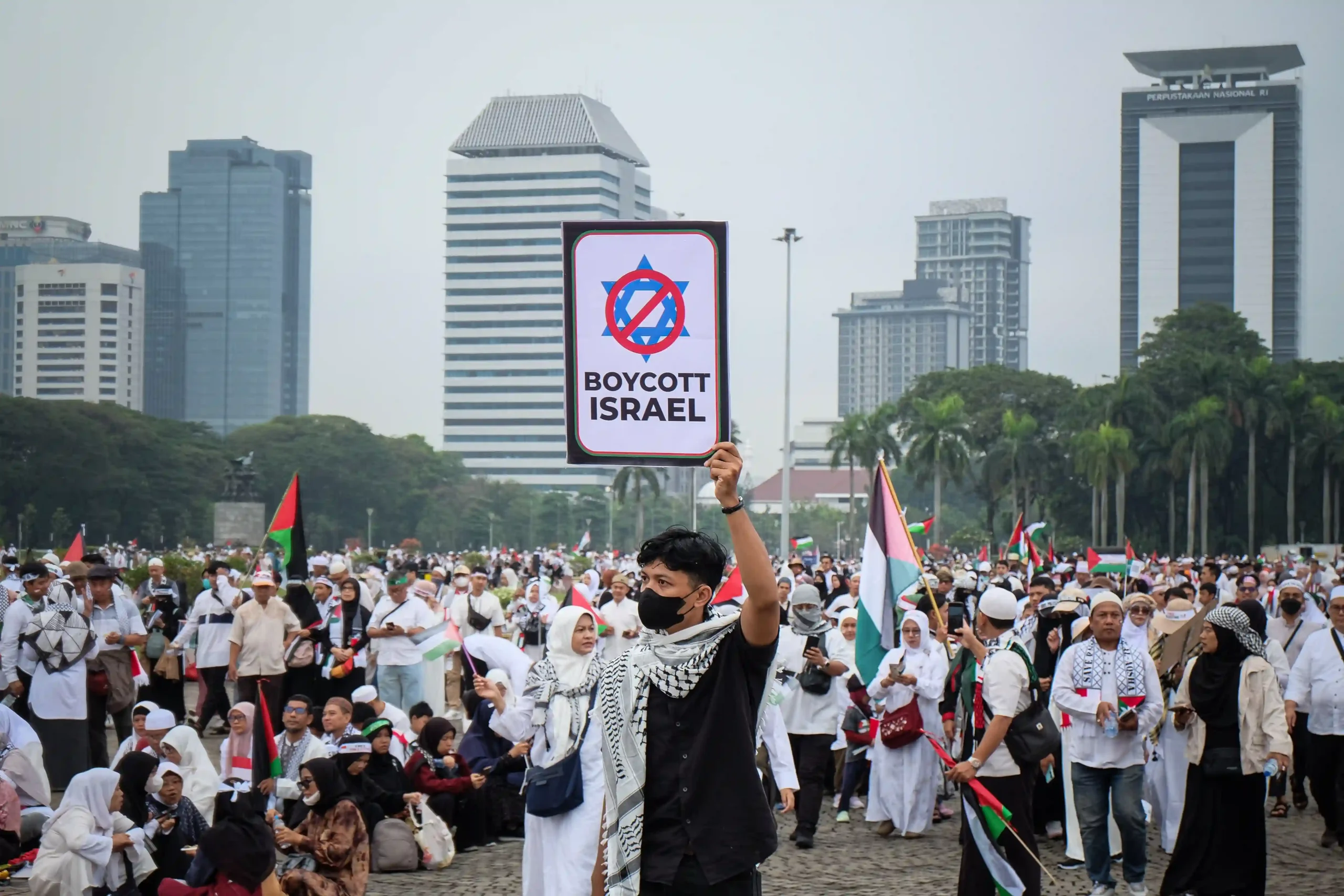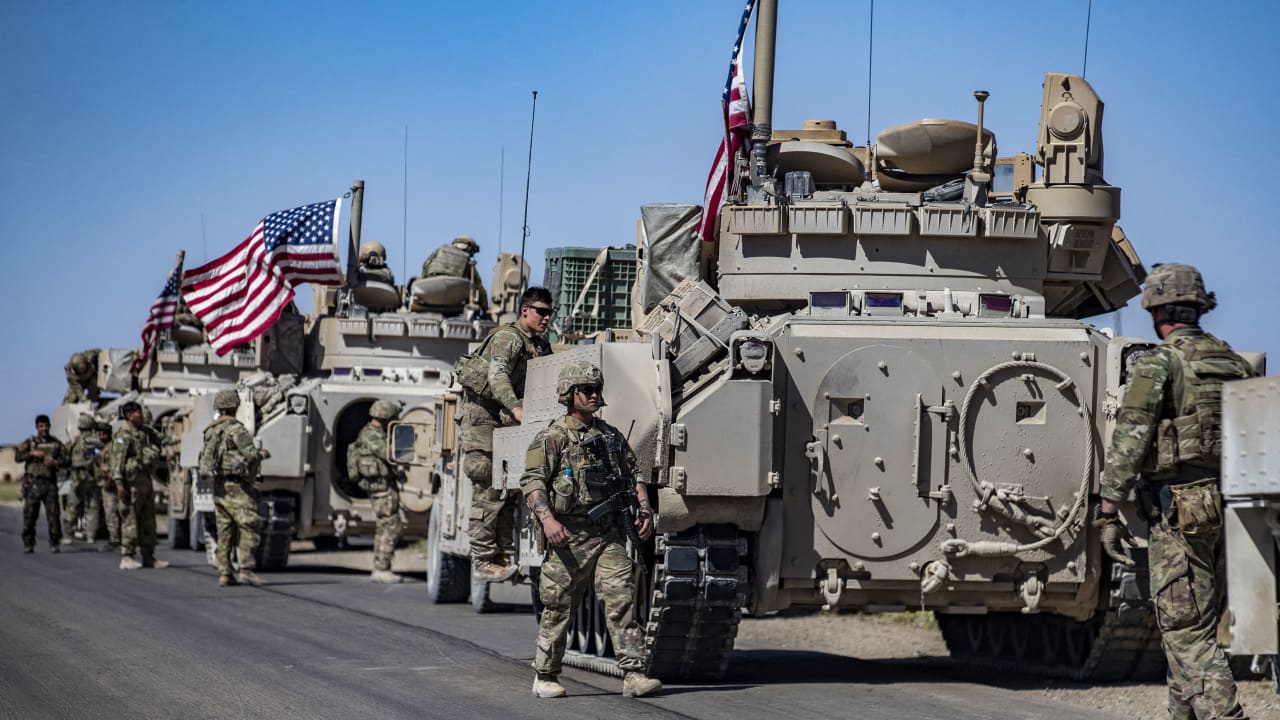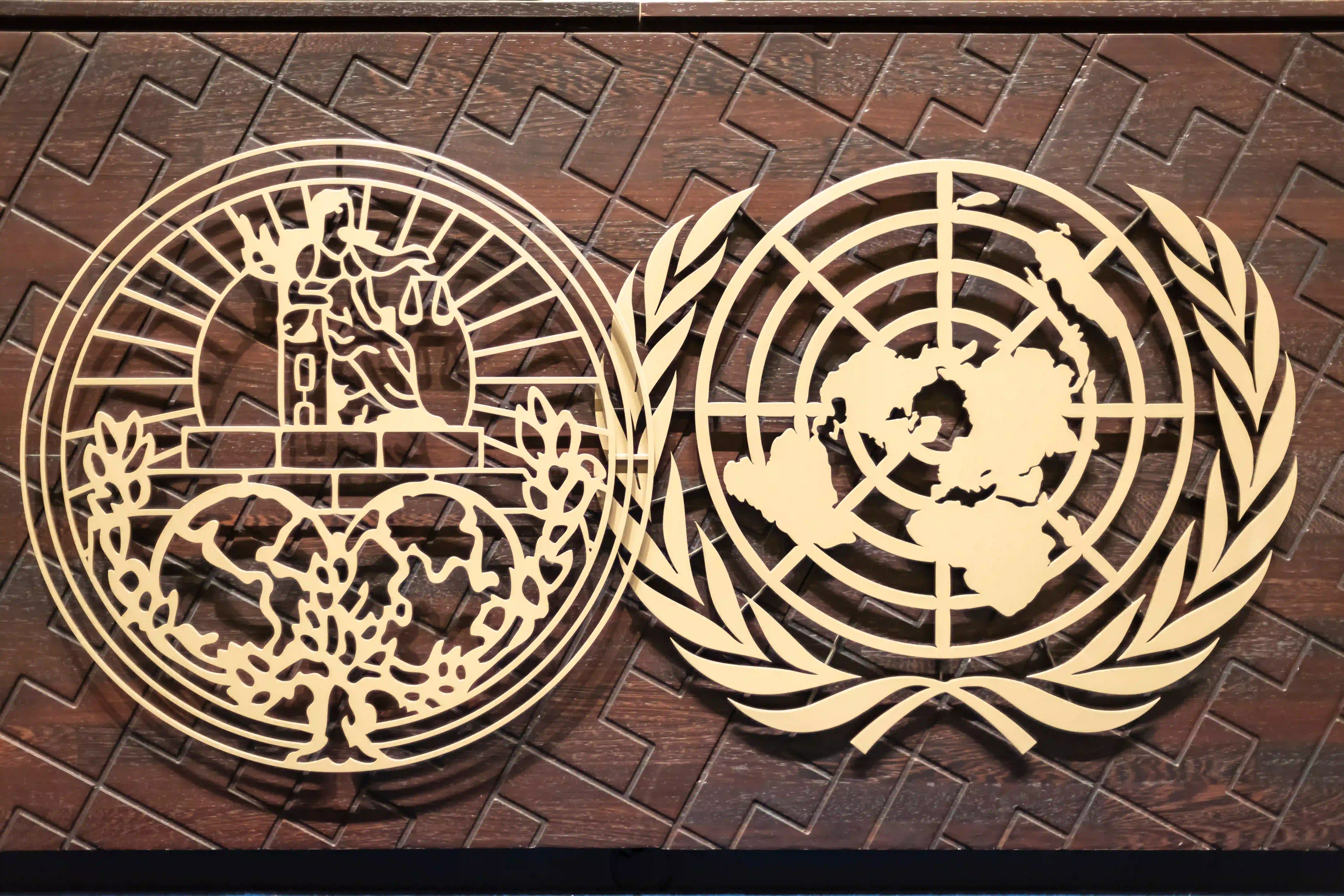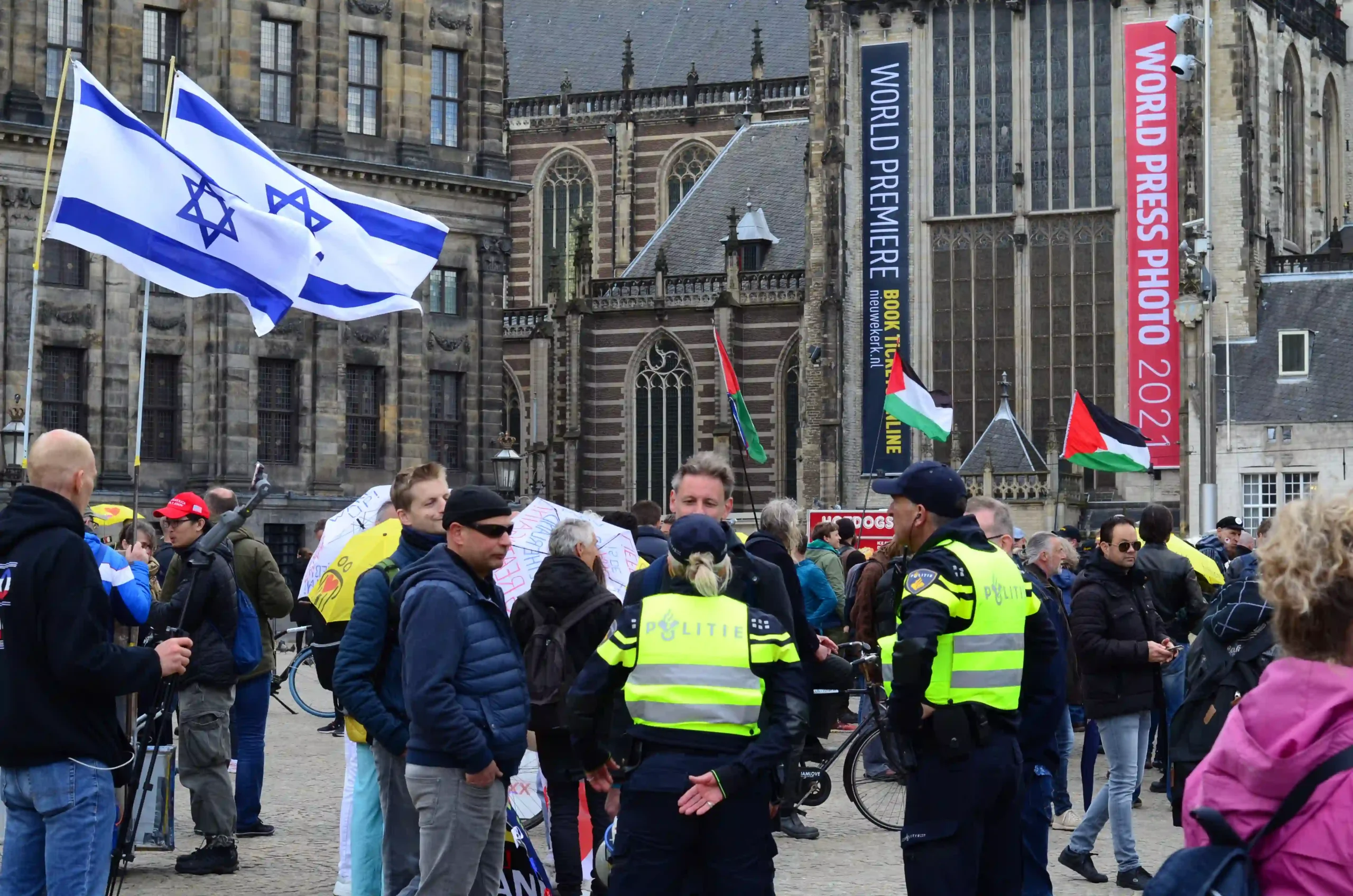25 Aug 2024
The Economic Ramifications of Israel’s Pre-emptive Strikes on Hezbollah
In the morning of Sunday, Aug. 25, the Israeli army carried out a pre-emptive strike, launching intensive air raids with around 100 fighter jets targeting over 40 sites believed to be Hezbollah’s precision missile launch points. These sites were allegedly being prepared for strikes against Israel’s northern border in retaliation for last month’s assassination of Hezbollah’s military commander, Fouad Shukr. In response, Hezbollah launched a significant counterattack later in the morning, deploying numerous drones and firing over 320 Katyusha rockets at Israel, hitting 11 military targets. The escalation raises concerns, particularly as the Israeli government plans to allow residents to return to the northern areas they evacuated nine months ago. Should Israel fail to mitigate Hezbollah's ongoing strikes, the situation could have severe political and security repercussions for the government. This analysis examines the immediate and direct economic impacts of these mutual attacks on both sides of the border, and the potential broader consequences should the war continue and intensify.
31 Jul 2024
The Assassination of Ismail Haniyeh: Implications for the Region
Ismail Haniyeh, the leader of Hamas’s political bureau, was assassinated in Tehran, Iran on July 31, 2024, following his attendance of the inauguration of Iran’s new president. Iran and Hamas have accused Israel of the assassination but Israel has given no response, as is common practice when Israel is involved in an assassination. The assassination of Haniyeh followed the earlier killing of Fuad Shukr a senior Hezbollah commander in Beirut by Israel, as retaliation for an attack that left 12 dead in the Israeli-occupied Golan Heights.
Israel has stated previously that it would target Hamas officials wherever they are following October 7, and were successful in December when they assassinated Haniyeh’s deputy in Beirut, which brought ceasefire talks to a halt.
The targeting of Haniyeh who was leading negotiation efforts for a ceasefire in the Israel-Hamas War is a serious escalation, and its occurrence in the heart of Iran directly following the inauguration of Iran’s president, not only has serious implications on the Israel-Hamas War, but for Iran and its proxies as well, who have been targeted recently by Israel.
So far, Iran has not provided information on how the assassination occurred, with the Iranian Revolutionary Guard Corps (IRGC) stating that the attack is under investigation, it is likely that a precision guided missile was used to target the IRGC veteran’s mansion that he was staying in. Following the assassination, Iran's Supreme Leader Ayatollah Ali Khamenei, has pledged that Israel will face "harsh punishment" for its action in Tehran.
This is not the first time that Israel has been able to penetrate Iran’s borders to conduct assassinations, Israel has routinely been able to target Iranian officials such as its yearslong assassination campaign against Iranian nuclear experts and others involved in the Iran’s nuclear program. Most recent was the 2020 assassination of, Mohsen Fakhrizadeh, a leading Iranian military nuclear scientist, was killed by a remote-controlled machine pistol while driving outside Tehran.
Given Iran's direct and massive missile barrage against Israel in April, following the bombing of its embassy in Damascus, the world now faces significant questions: How will Tehran respond to the assassination of Ismail Haniyeh on its soil? Moreover, does Iran have the capability or incentive to contain the actions of Hezbollah and the Houthis, especially after Israel’s killing of Hezbollah’s Fuad Shukr in Beirut and its bombing of the Houthi’s Hodeidah Port?
28 Jul 2024
Unpacking the Majdal Shams Attack
The Israel-Hamas War has fundamentally altered the dynamics of engagement between Israel and Hezbollah. Before October 7 the two adversaries adhered to a set of engagement rules established after their 2006 conflicts, which restricted their military actions to specific areas like the Shebaa Farms, avoiding deeper incursions into each other's territory. However, over the past nine months, these rules have eroded, leading to an escalation that, while intense, has not yet escalated into full-scale war.
In October 2023, Hezbollah escalated its involvement by launching rockets into Israeli-occupied territories. This marked a significant shift, with both parties engaging in psychological warfare, openly sharing or hinting at intelligence about each other. Hezbollah’s actions soon expanded to include strikes deeper into Israeli territory. In response, Israel targeted Hezbollah military installations near the Israeli-Lebanese border. It conducted a series of targeted assassinations of leaders within the elite Radwan Division, which oversees operations near the border. Israel’s retaliatory measures have since broadened to encompass a wider area of southern Lebanon and the Bekaa Valley, indicating a significant escalation in the conflict dynamics.
The conflict further escalated to encompass the village of Majdal Shams, a Druze village in the Golan Heights. The Israeli military spokesperson reported that a rocket targeting the village was an Iranian-made Falaq-1, launched from the area north of Shebaa in southern Lebanon, with Hezbollah allegedly responsible for the attack.
According to the Israeli account and preliminary investigations, the missile was indeed launched from Lebanese territory, specifically the Shebaa Farms. However, it was not intended to strike Majdal Shams; an Israeli missile interception redirected it, causing it to land in the village.
2 Apr 2024
Israel-Hamas War: A Potential Breaking Point for Israeli Society
The dynamics between the Haredi Jewish community and the state of Israel are intricate and peculiar, shaped by many complex factors. Despite their historical opposition to the state's establishment and its Zionist underpinnings, they have emerged as prominent beneficiaries within Israeli society. Despite their active involvement in politics, with dedicated parties and ministerial representation in successive Israeli governments, the Haredi community seeks to diminish government authority over them. They maintain superficial compliance while preserving their self-organised societal structures.
These contradictions have been a continual source of critique within Israeli society since the State's inception. Successive Israeli administrations have consistently granted numerous privileges to the Haredi Jewish community, influenced by their political and religious sway. Chief among these privileges is their exemption from mandatory conscription, unlike other societal groups, accompanied by various financial incentives. However, the landscape is poised for significant transformation following the Gaza war.
This analysis aims to delve into the economic traits of the Haredi Jewish community and explore their broader economic impacts on Israeli society.
3 Mar 2024
What if the U.S. Ceased Providing Military Aid to Israel?
A recent statement from the European Union Foreign Policy Commissioner, Josep Borrell, urging Israel's allies, notably Washington, to cease supplying weapons to Israel has ignited widespread controversy. This call comes amid heightened concerns over the significant civilian deaths in the Gaza Strip. Coinciding with this plea, a Dutch appeals court decision has prohibited the export of all spare parts for F-35 fighter jets destined for Israel. These developments unfold against the backdrop of Israel's plans to initiate an expanded military operation in Rafah. Such an operation raises the spectre of a potential humanitarian catastrophe, particularly concerning the over 1.3 million displaced individuals from the Gaza Strip who have sought refuge in Rafah since the commencement of military activities in the enclave.
The United States provides Israel with annual military aid worth $3.8 billion, which stands as one of the most substantial military aid packages supplied by the U.S. to any country globally. This commitment was reaffirmed by U.S. officials, including President Joseph Biden, who, during his tenure as Vice President under Barack Obama, emphasised the enduring strategic alliance between the two countries. Then Vice President Biden said the U.S. commitment to Israel transcends moral obligations and is a deeply rooted strategic obligation. During a visit to Tel Aviv amid the events of Oct. 7, he underscored that “the existence of an independent and secure Israel within globally recognised borders aligns with the practical strategic interests of the United States.” He further emphasised, “I have long said: If Israel didn't exist, we would have to invent it.” Evidence of the depth of relations and continued support is further demonstrated by Congress' approval of an additional $14.1 billion in military aid to Israel. This aid is intended to bolster Israel's capabilities in its conflict with the Hamas movement, specifically by providing air and missile defence support and replenishing U.S. military stock granted to Israel. This level of support echoes the assistance provided by the United States to Israel during the October 1973 War with the Egyptian Army.
The generous and unconditional support provided by the U.S. to Israel prompts numerous inquiries, particularly in the context of the U.S.'s inability to exert pressure on Israel to stop its war on Gaza. Additionally, its loss of control over the right-wing government's decision-making process regarding the potential expansion of the war to include Rafah, portending an imminent conflict with Egypt. Hence, this analysis endeavours to address a pivotal question: Will these developments prompt a shift in the U.S. stance toward Prime Minister Benjamin Netanyahu and his right-wing government, potentially leading to a withdrawal from the notion of an expanded operation in Rafah? Furthermore, can the United States feasibly cease its military aid to this strategic ally in the Middle East?
6 Feb 2024
The Economic Impacts of Boycotts Against Israel and Supporting Companies
The documented history of employing a boycott as an economic weapon traces its origins to 432 B.C., Athens enacted the Megarian Decree, named after the city of Megara in ancient Greece. This decree comprised a series of economic sanctions, with a pivotal measure prohibiting Megarian goods from entering Athens. It extended to restricting Athenian ships from docking in Megara and, ultimately, barred Megarians from trading within the Athenian market.
In response, Megara and its allies in the Peloponnesian League took retaliatory economic actions, prominently featuring a boycott of Athenian goods. This reciprocal economic pressure adversely affected both entities, culminating in the onset of the Peloponnesian War. Lasting approximately 27 years, this conflict subsequently impeded the growth and continuity of Greek civilisation.
The following centuries witnessed the global utilisation of economic boycotts for various political purposes, primarily targeting the party subject to the sanctions, causing it to abandon a particular policy. Noteworthy instances include the Jews' first-century B.C. boycott of Roman goods, a protest against Roman occupation. In the 16th century, the Dutch Republic boycotted Spanish goods in opposition to Spanish rule. Additionally, during the 18th century, the U.S. colonies boycotted British goods as a protest against exorbitant taxes.
Contrary to common belief in the Arab world, the weaponisation of economic boycotts is not a recent phenomenon. Over the past two centuries, numerous academic studies have comprehensively examined and analysed its impact on both the boycotting and boycotted economies. These studies aim to gauge the effectiveness of economic boycotts in realising their intended goals.
The tactic of economic boycotts made its debut in the context of the Arab-Israeli conflict in 1922, when Palestinian Arab leaders initiated a boycott targeting Jewish-owned businesses in Palestine, aiming to inflict economic harm upon the Jewish population. These boycott attempts persisted sporadically throughout the 1930s and 1940s, with a notable instance occurring in 1936 when Palestinian Arab leaders advocated for a comprehensive boycott of all things associated with Jewish identity, even resorting to physical violence against Arabs who disregarded the boycott. Despite these efforts, the boycott proved unsuccessful, given the significant reliance of the Palestinian population on Jewish professionals such as lawyers, doctors, and hospitals.
Subsequently, the boycott assumed a regional dimension in December 1945 when the six states comprising the Arab League jointly issued the initial call for an economic boycott against the Jewish community in Palestine. This declaration went beyond mere encouragement and urged all Arab countries, regardless of their League membership status, to prohibit the trade of Jewish products.
In 1946, the situation evolved with the Arab League establishing the Permanent Boycott Committee, intending to heighten the implementation of the boycott. Despite these efforts, the boycott's lack of success became evident, as outlined in the first annual report of the Boycott Committee.
Following the committee's shortcomings, the League swiftly bolstered its structure, transforming it into the Central Boycott Office. Headquartered in Damascus, it established branch offices in every member state of the Arab League. The pivotal role of the county commissioner was instituted to lead the office, accompanied by appointed deputies serving as liaison officers accredited by each member state of the Arab League.
The Central Office in Damascus assumed the pivotal role of coordinating the boycott in tandem with its affiliated offices. It was responsible for presenting regular reports to the Council of the Arab League. Starting from 1951, semiannual meetings were scheduled to synchronise boycott policies and formulate blacklists of individuals and companies breaching the boycott. The punitive measures were executed locally, with each member state implementing decisions through legal and administrative executive procedures.
From 1951 to the present moment of composing this analysis, calls for boycotts have been recurrent with each political conflict between Palestinians and Israelis. They have been wielded as a means of resistance against Israeli occupation and its perceived unjust policies toward the Palestinian population. However, these calls have generally manifested in three distinct patterns, as explained below.
30 Jan 2024
The Vicious Cycle of Violence: Next Steps Post-Jordan Attack
On Jan. 28, 2024, a significant drone strike occurred at an American military outpost situated along the Jordanian-Syrian border. The targeted attack led to the death of three American troops, with 34 additional personnel sustaining injuries, as reported in the latest statement released on Jan. 30, 2024.
This event holds profound implications and is poised to instigate repercussions that warrant careful analysis and monitoring. Notably, it marks the first instance of American service members being killed by hostile fire in the Middle East since the commencement of the Israel-Hamas War. The attack's location and timing carry additional connotations, underscoring the need to anticipate and evaluate the potential developments that may occur.
Moreover, the Islamic Resistance in Iraq (IRI) claimed responsibility for the attack in a statement, explicitly stating, “We targeted four enemy bases, including three situated in Syria: Al-Shaddadi base, Al-Rukban base, and Al-Tanf base (located near the Syrian-Jordanian border). The fourth targeted base is within the occupied Palestinian territories, identified as the Zevulun Naval Facility.”
11 Jan 2024
Israel and the ICJ: Resuscitating Global Order
South Africa’s case against Israel at the ICJ is a welcome attempt to revive the global social order but failure to bring about real proportionate justice will only further confirm the current state of international anarchy and embolden other rogue actors.
On Jan. 11, 2024, Israel appeared before the International Court of Justice in The Hague at the first hearing in the case presented against it by South Africa. Israel has been accused of committing the crime of genocide and may be subjected to provisional measures, which would request it to decrease all acts from within Article II of the Genocide Convention and halt its military operations in the Gaza Strip. The State of Israel, established in 1948, the same year that the U.N. Genocide Convention was adopted, may be charged with breaching the Convention, of which it is a signatory.
30 Nov 2023
The West Polarised: Impact of the War in Gaza
Ramifications of the Israeli-Hamas War have not been confined within Gaza or the Middle East’s borders. Polarisation over the Palestinian cause has reached a new character especially in the Western world where such a trend has never been as deep. Cracks within governments and societies can be traced to a volatility of values, exposure to social media, and demographic changes. With such an unprecedented divide over Western governments tolerating Israeli impunity in Gaza, the West is faced with a moral dilemma which might cost it it’s claimed “moral superiority”.



